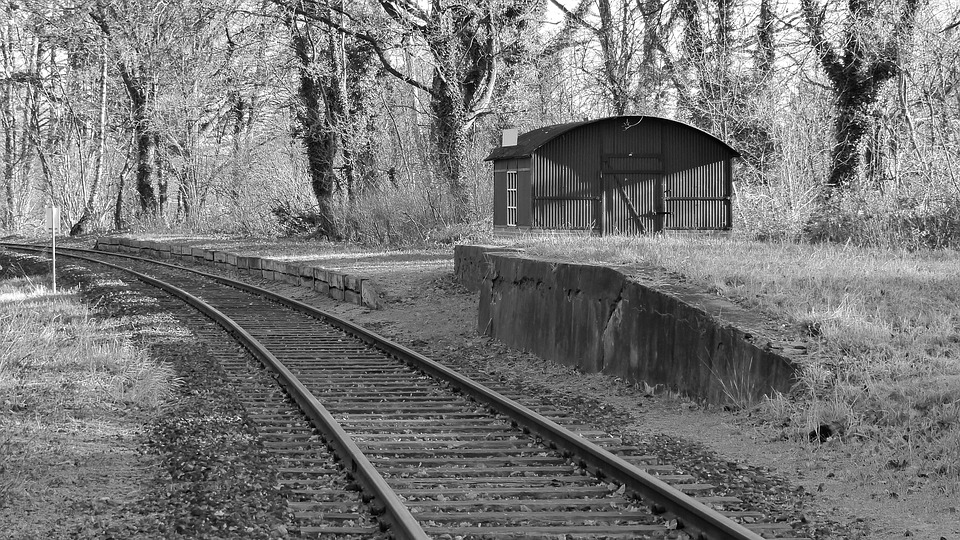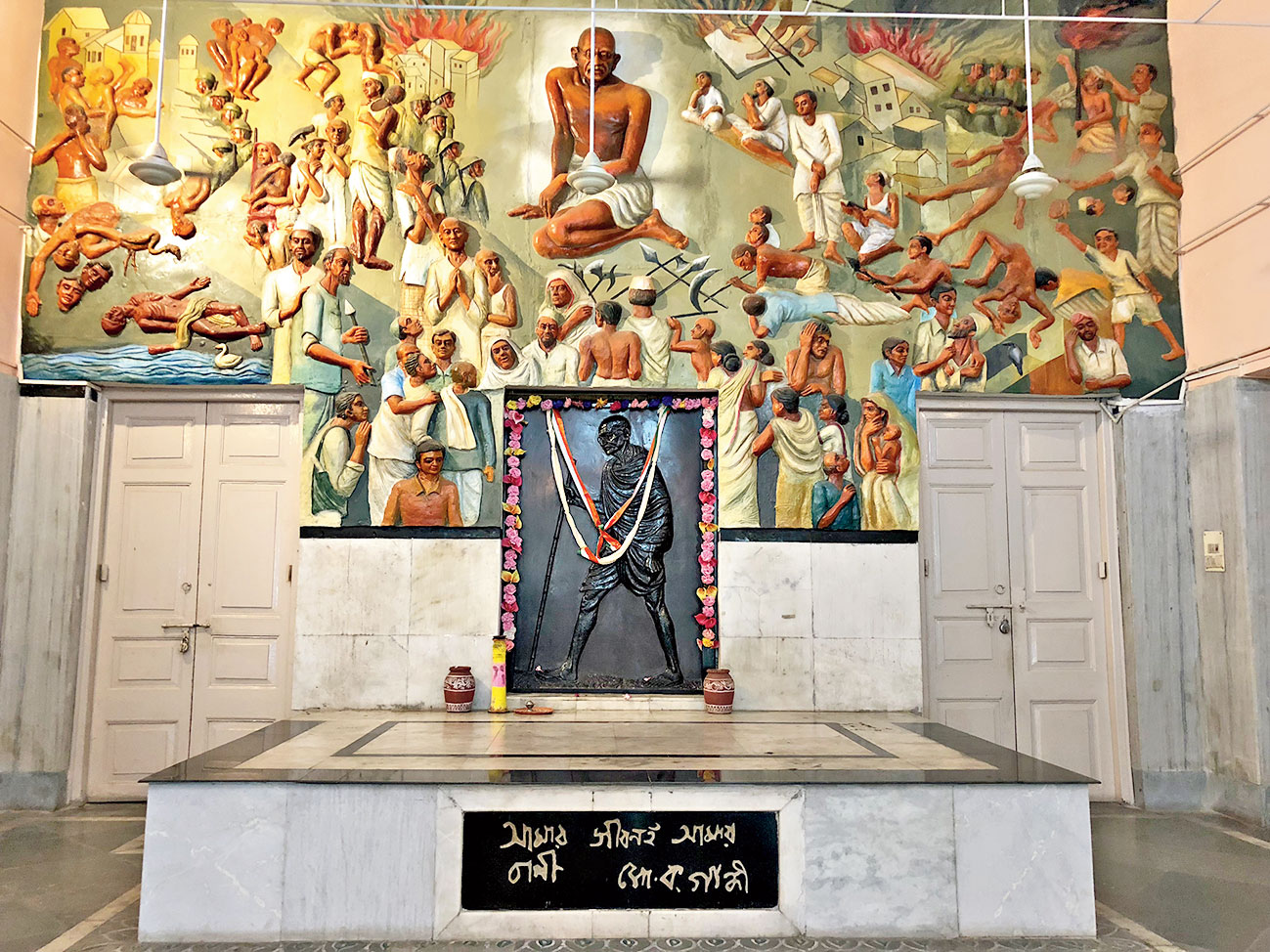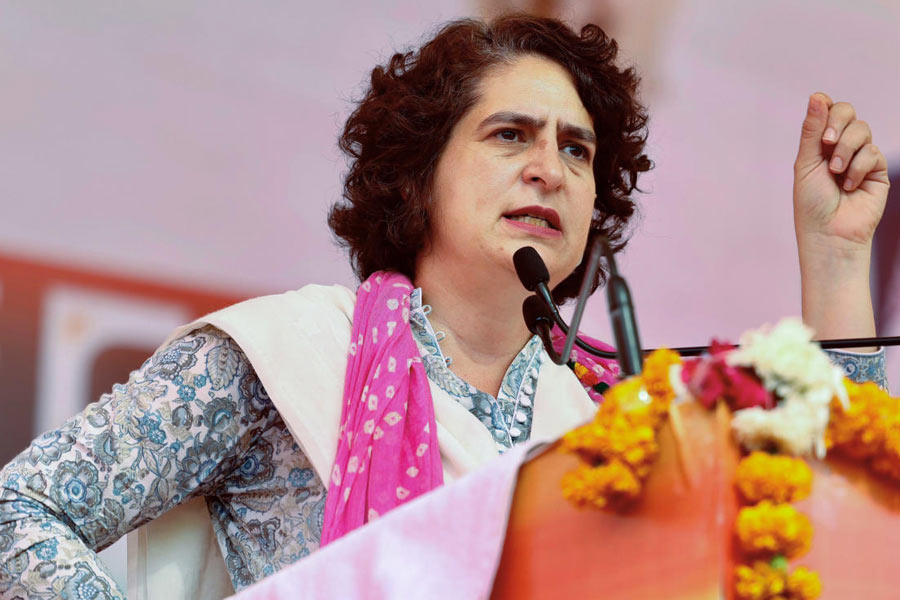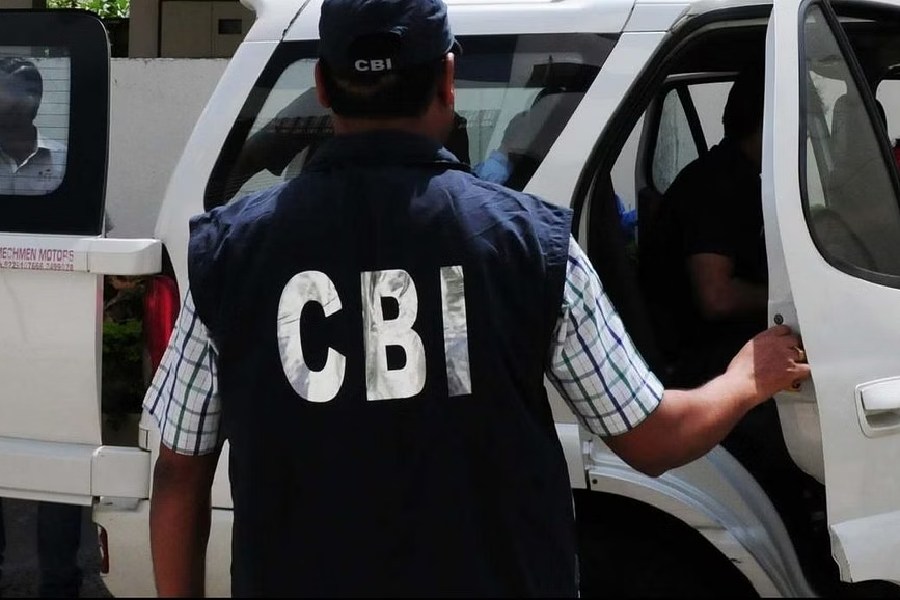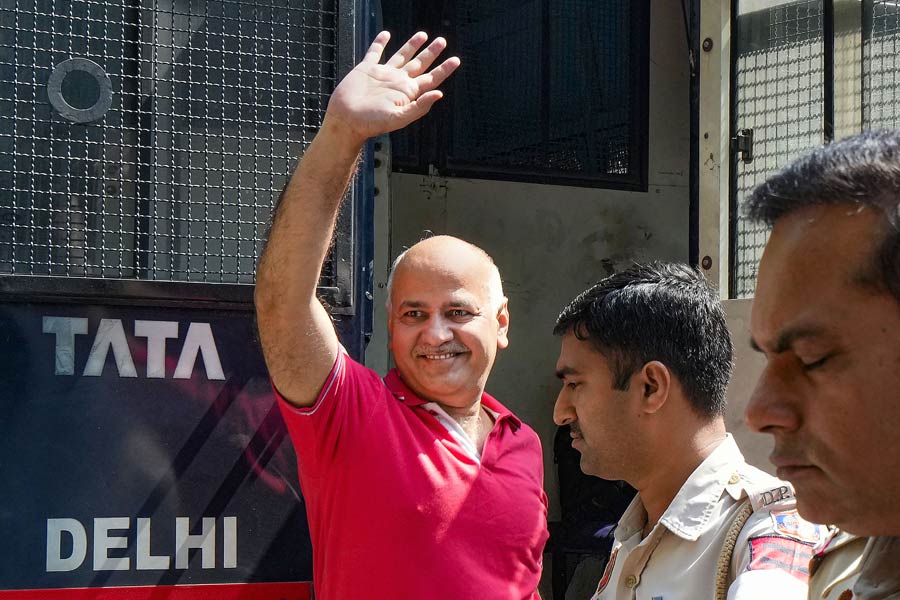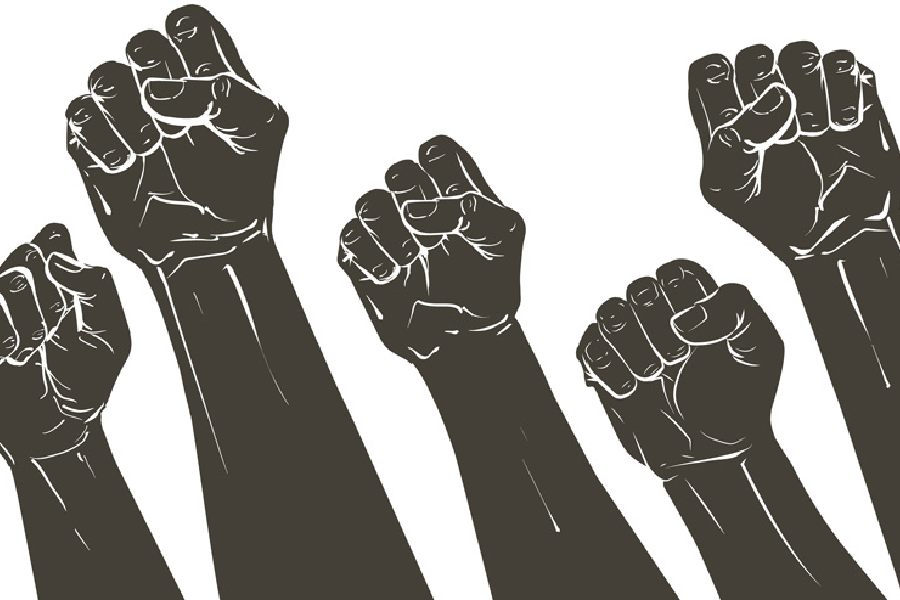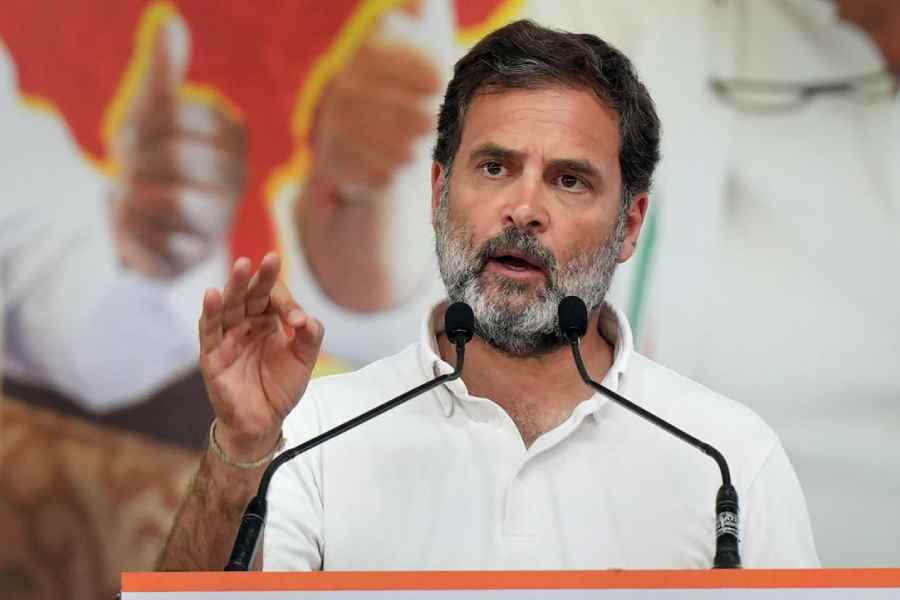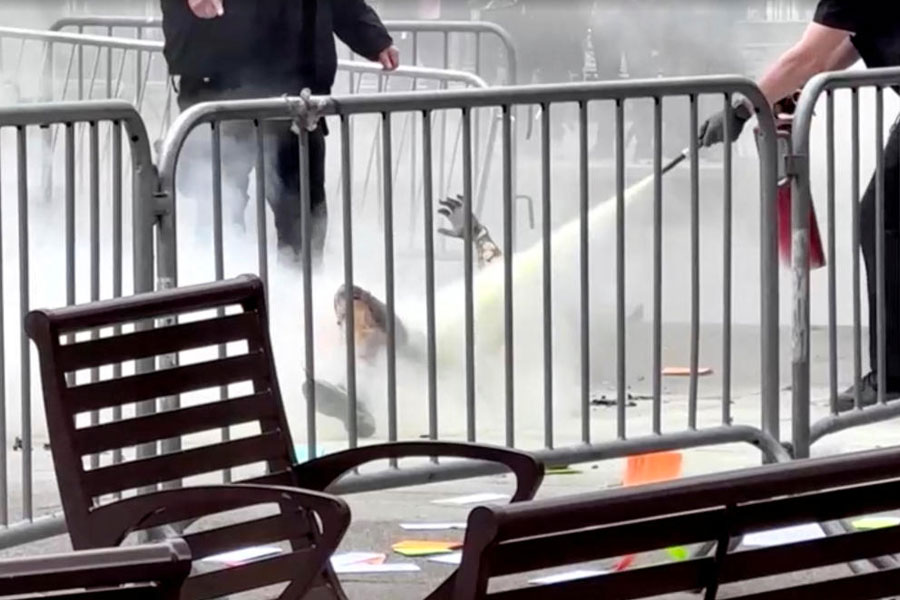It also meant stopping at railway retiring rooms during break-journeys and a wealth of stories. About how railway children went to school on trains and trolleys, those umbrellaed platforms that were pushed along the tracks by gangmen. About postings in remote Tiruldihi in what is now Jharkhand, where the grandmother would literally tie her youngest, my father, to her pallu when they slept outside in the hot summer months. (You know, just in case a leopard tried to make away with the little one.) About my great-grandfather’s sudden meeting one winter dawn with a bear in the Bahalda Road (Mayurbhanj, Odisha) quarters of his son. There was a mahua tree in the garden whose addictive flowers the bears loved feasting on. About the elephant that challenged the Bombay Mail, whose stuffed head used to live in the Mumbai headquarters of Western Railway.
That’s the grandparent bit. And what did having a great-grandfather in the railways mean? A few years ago, on the way from Calcutta to Mumbai, we were traversing the stretch from Raipur to Nagpur when my father called. There was nothing unusual in that, he loved travelling and since age and health had come to impede his journeying, he enjoyed vicariously. That day he asked me if we had crossed Raipur and where we were at the time.
Peering out of the double-glazed windows and into the darkness, I told him we were going through a cutting. A cutting is a reference to rail tracks ensconced on either side by steep high walls. You will come across a cutting whenever the tracks are climbing a mountain. These sometimes lead to tunnels and sometimes don’t. Baba said this would be the first of many on that route and would not lead to a tunnel.
One would think he’d stop there with the specifics, but he didn’t. He continued to call out — “You will pass through three more. And mind you, just after the second one, a waterfall will appear. It will dance down the steep wall to your right, cross the tracks under a culvert and go down the hill on its way.” I kept a sharp lookout through the tinted window while my father continued to chat with his grandson on the phone.
And sure enough there were those tunnels, as also the summer-depleted waterfall trickling down the steep rock face — though I must say I found it only because I knew where to look. The train tracks then curved to the left, to the right, to the left and a very sharp turn to the left again — all exactly as Baba had predicted.
Had he travelled these tracks often, I asked. Only a couple of times, he said, on the way to Gondia in Maharashtra where his father was posted. But he remembered these tracks very well because the first time he had travelled them in company of his grandfather, who had predicted every cutting, every tunnel, every turn, every culvert for him. Just like me, my father had surmised his grandfather had travelled this way often. But that was not it. Paresh Nath Sen could recount every turn of those tracks to his grandson because he had planned and laid them himself. The tracks sharply turned around the hillocks of Chhotanagpur plateau so that tunnels did not have to be bored through them.
And so, a family tale was passed down from grandfather to grandson just as it had been from another grandfather to his grandson so many years ago. As the train hummed along, I sighed with satisfaction.
Having someone you know in the Indian Railways used to feel like a free pass. Having a next of kin in the same actually got you the passes to travel the length and breadth of the country in first-class comfort. And that was not all the privilege, the list ran long. Calling at least half-a-dozen towns “home” at some point of time, living in sprawling bungalows with tree-lined gardens — a friend lived in what was once the home of one of Nawab Wajed Ali Shah’s many nautch girls in Garden Reach; and being able to travel in saloons, those adventures on wheels regular non-railway people know nothing about. It would also mean trains making special stops at a small station just for you and never missing a train, even if you were a few minutes late — reasons be damned.
Having a grandparent in the railways meant being taught to read a railway timetable early on, inheriting a line box (a wooden box with compartments to store everything from clothes to rations and used during inspections) and growing up believing that bathrooms in air-conditioned coaches came with bathtubs. Why? Because you vacationed aboard the saloon of a doting great-uncle with one such.

